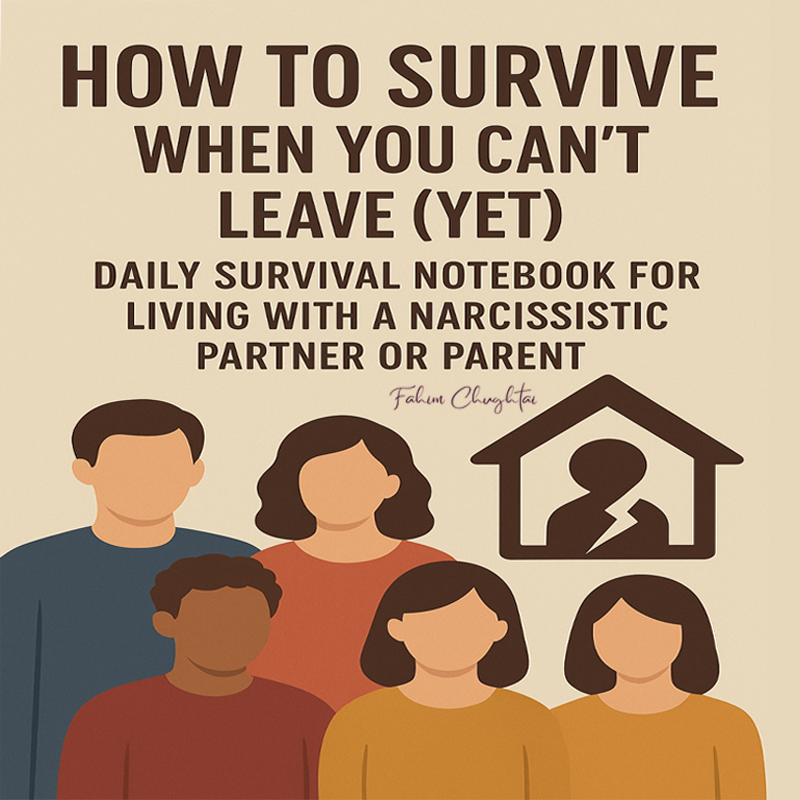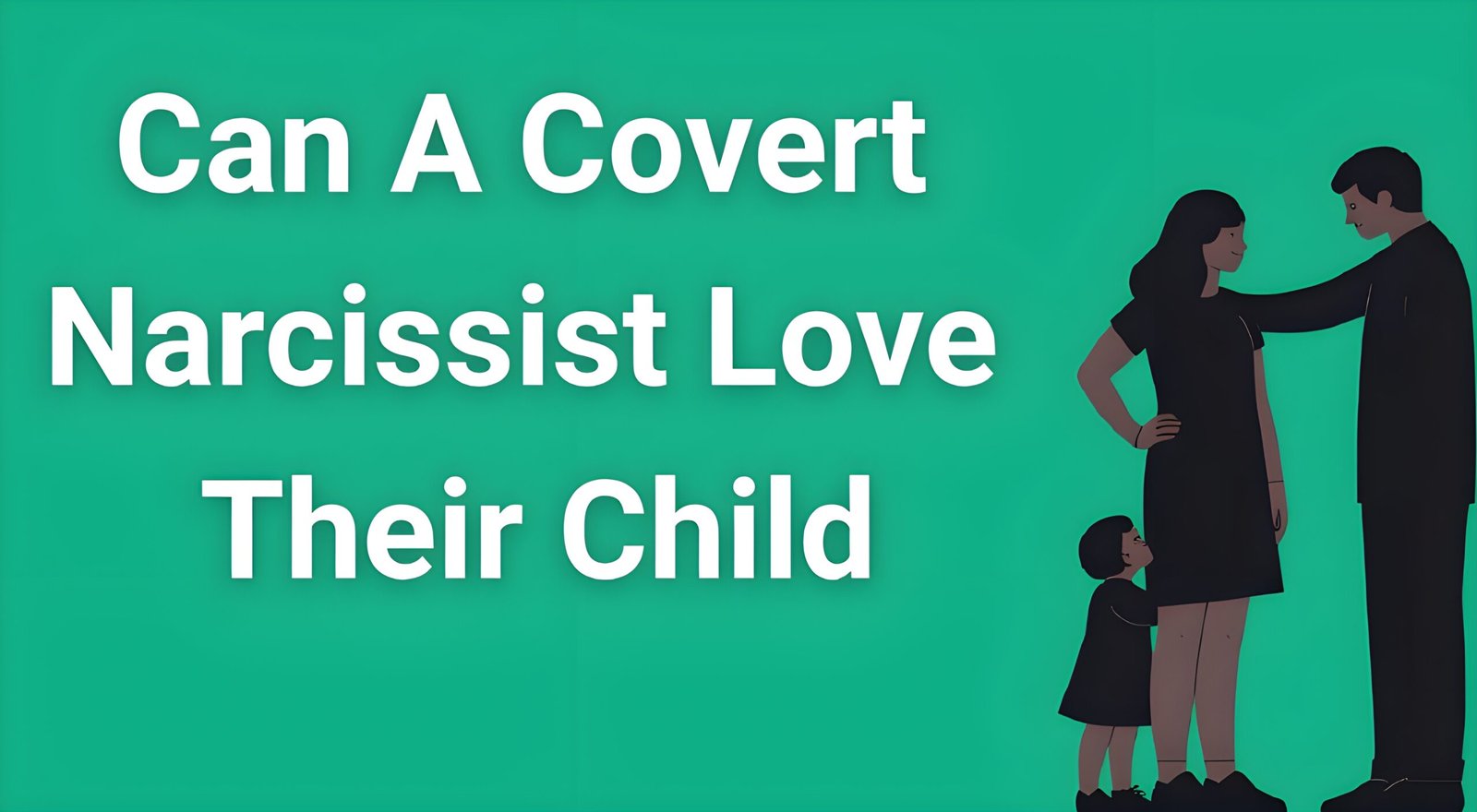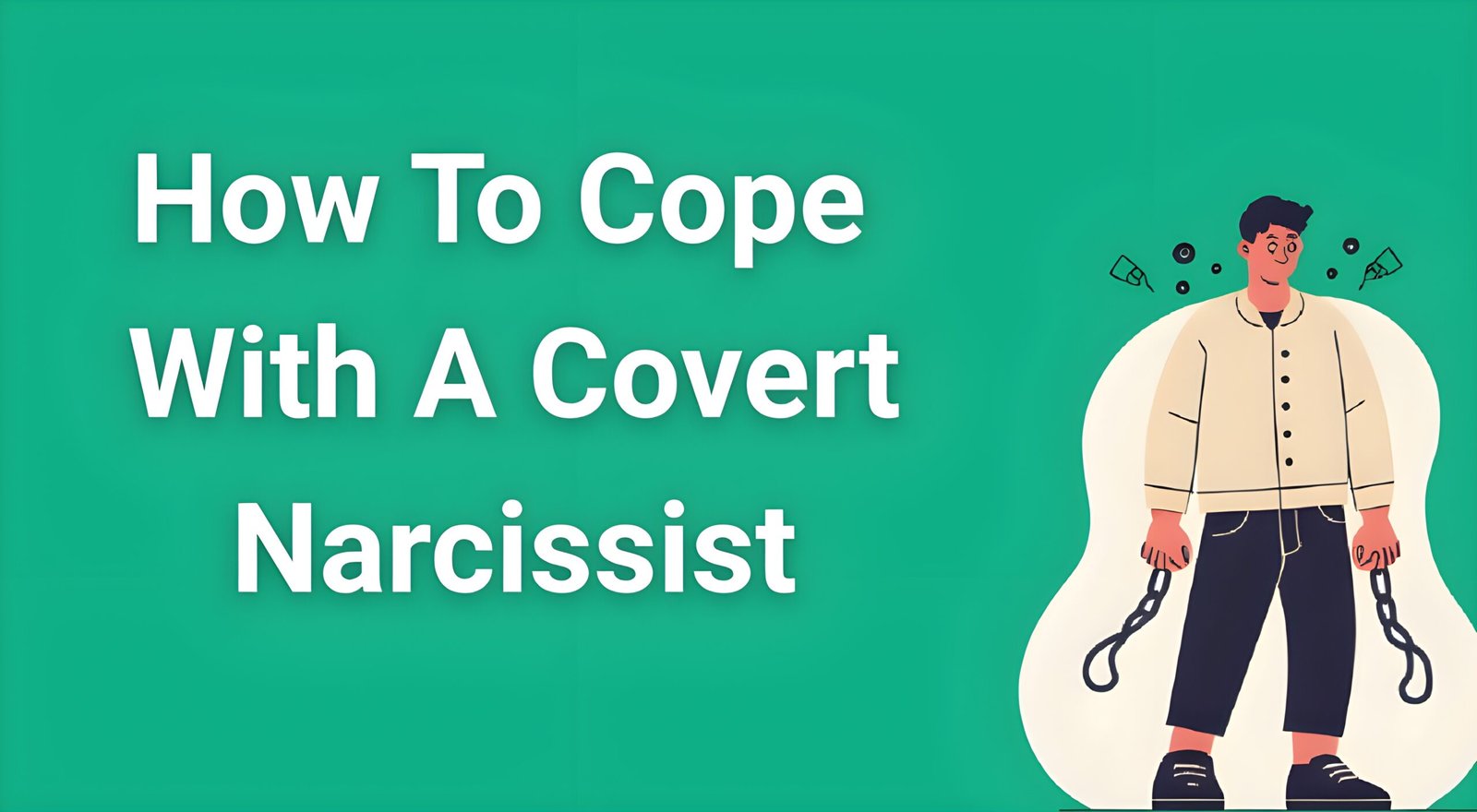If you’re running with a covert narcissist in your life, you already know the exhaustion that comes with walking on eggshells daily. Unlike their grandiose counterparts who demand attention loudly, covert narcissists operate in shadows, making you question your own reality while slowly eroding your sense of self.
- Understanding the Covert Narcissist Phenomenon
- 15 Essential Survival Strategies When Running with a Covert Narcissist
- Recognizing When You Need Additional Support
- Breaking Free from the Trauma Bond
- Building Your Long-Term Recovery Plan
- Protecting Yourself While You Can’t Leave Yet
- Frequently Asked Questions
- Conclusion
The confusion you feel isn’t imaginary. You’re not “too sensitive” or “overreacting.” What you’re experiencing is a calculated pattern of manipulation that leaves even mental health professionals scratching their heads initially. This survival guide provides concrete strategies for protecting your sanity while navigating the complex dynamics of covert narcissistic relationships.
Understanding the Covert Narcissist Phenomenon
Running with a covert narcissist means dealing with someone who has mastered the art of appearing humble while harboring deep feelings of superiority. These individuals present themselves as victims, martyrs, or highly sensitive people, yet their actions consistently undermine your confidence and emotional stability.
Unlike overt narcissists who are obviously self-centered, covert narcissists fly under the radar. They may seem like the most caring person in the room, always willing to help others or appearing deeply empathetic. However, their “kindness” often comes with strings attached, and they keep detailed mental records of every favor they’ve done.
Am I Dealing With a Covert Narcissist — or Just Toxic Behavior?
The neurological impact on victims is profound. Chronic exposure to covert narcissistic behavior creates trauma responses similar to those seen in prisoners of war. Your nervous system remains in a constant state of hypervigilance, trying to anticipate the next subtle attack or manipulation.
15 Essential Survival Strategies When Running with a Covert Narcissist
1. Document Everything Discreetly
Keep a private journal of incidents, conversations, and your emotional responses. Covert narcissists excel at gaslighting, making you doubt your memory and perceptions. Written records serve as your anchor to reality.
Use your phone’s voice memo feature to record your thoughts immediately after concerning interactions. Date and time stamp everything. This documentation becomes crucial for maintaining your sanity and potentially for legal purposes if the situation escalates.
2. Master the Gray Rock Technique
When direct confrontation isn’t possible or safe, become as uninteresting as a gray rock. Provide minimal responses to their attempts at engagement. Answer questions with facts only, avoiding emotional reactions that might feed their need for drama.
This technique works because covert narcissists thrive on emotional reactions. When you become predictably boring, they often turn their attention elsewhere. However, be prepared for an initial escalation as they try harder to provoke responses.
3. Build Your External Support Network
Isolation is a covert narcissist’s most powerful tool. They systematically damage your relationships with others through subtle criticisms, manufactured conflicts, or by positioning themselves as the victim when you seek support elsewhere.
Actively maintain relationships outside their influence. Schedule regular check-ins with trusted friends or family members. Consider joining support groups specifically for narcissistic abuse survivors where you can share experiences with people who truly understand.
4. Establish Non-Negotiable Boundaries
Covert narcissists test boundaries constantly, pushing against your limits with incremental violations. Establish clear, specific boundaries and enforce them consistently, regardless of their emotional manipulation tactics.
Effective boundary setting involves stating your limits clearly and following through with consequences. For example: “I won’t discuss my personal relationships with you. If you continue bringing this up, I’ll end our conversation.” Then actually leave if they persist.
5. Learn to Recognize Projection Tactics
Covert narcissists frequently accuse you of behaviors they exhibit themselves. When they claim you’re being manipulative, selfish, or cruel, they’re often describing their own actions. This projection serves to deflect attention from their behavior while making you question yourself.
Develop awareness of these patterns. When faced with accusations that don’t align with your character or actions, consider whether they might be projecting their own traits onto you. This recognition helps maintain your sense of reality.
6. Protect Your Financial Independence
Financial control is a common covert narcissistic tactic. They may subtly sabotage your career, create financial emergencies that drain your resources, or make you financially dependent on them. Maintaining economic independence is crucial for your ability to make free choices.
Open separate accounts they can’t access. Build an emergency fund, even if you can only contribute small amounts. Consider having important documents stored securely outside their reach. Your financial freedom directly correlates to your ability to protect yourself.
7. Validate Your Own Experiences
Covert narcissists excel at making you doubt your perceptions. They might say things like “You’re remembering that wrong” or “You’re being too emotional about this.” Your experiences and feelings are valid, even if they consistently tell you otherwise.
Practice self-validation by acknowledging your emotions without judgment. If something feels wrong, trust that instinct. Your internal warning system developed those responses for legitimate reasons, even if you can’t immediately articulate why something bothers you.
8. Limit Information Sharing
Information is ammunition in the hands of a covert narcissist. They collect details about your vulnerabilities, fears, and dreams, then use these against you during conflicts. Share personal information sparingly and strategically.
This doesn’t mean becoming secretive about everything, but rather being selective about what you reveal and when. Pay attention to how your personal information gets used later in arguments or manipulation attempts.
9. Develop Your Reality Testing Skills
Regular reality checks become essential when running with a covert narcissist. Their gaslighting can be so subtle that you gradually lose trust in your own perceptions. Develop systems for verifying your experiences and maintaining perspective.
Keep screenshots of text conversations, save emails, and note dates of important events. When possible, have witnesses to conversations or agreements. These external verification methods help combat the confusion created by consistent gaslighting.
10. Practice Emotional Detachment
Learning to respond rather than react takes practice but provides powerful protection. Covert narcissists study your emotional triggers and use them strategically. Developing emotional detachment doesn’t mean becoming cold, but rather responding from a place of choice instead of reflexive emotion.
Techniques like deep breathing, counting to ten, or excusing yourself to process before responding can prevent you from being drawn into their preferred dynamic of chaos and drama.
11. Understand Their Victim Mentality
Covert narcissists position themselves as perpetual victims, even when they’re clearly the aggressors. They might cry when confronted about their behavior or flip the script to make you feel guilty for addressing legitimate concerns. Understanding this pattern helps you resist their manipulation.
When they play victim, resist the urge to comfort them at your own expense. You can acknowledge their feelings without accepting responsibility for causing them or fixing their emotional state.
12. Create Physical and Emotional Space
Distance is your friend when dealing with covert narcissistic behavior. This might mean limiting time spent together, creating physical barriers in shared spaces, or taking regular breaks from their presence to reset your nervous system.
Even brief periods of separation can help you regain perspective and remember who you are outside their influence. Use this time to engage in activities that bring you joy and reconnect with your authentic self.
13. Refuse to Engage in Circular Arguments
Covert narcissists love circular arguments that go nowhere but leave you exhausted and confused. They might bring up past grievances repeatedly or twist your words to mean something you never intended. Learn to recognize when you’re being pulled into these unproductive exchanges.
Phrases like “We’ve already discussed this” or “I’m not going to continue this conversation” followed by actual disengagement can break these cycles. Don’t feel obligated to defend yourself against unreasonable or repetitive accusations.
14. Strengthen Your Identity Apart from Them
Covert narcissistic relationships can erode your sense of self over time. They may criticize your interests, undermine your confidence, or slowly isolate you from activities and people that make you feel authentic and alive.
Deliberately engage in activities that reinforce your individual identity. Pursue hobbies they’ve criticized, spend time with friends they don’t like, or explore interests they’ve dismissed. Your authentic self deserves protection and expression.
15. Know When Professional Help is Needed
Sometimes the situation becomes too complex or dangerous to navigate alone. Mental health professionals trained in narcissistic abuse can provide specialized support and strategies. Don’t wait until you’re completely overwhelmed to seek help.
Consider therapy if you’re experiencing depression, anxiety, panic attacks, or thoughts of self-harm. Professional support can accelerate your healing and provide tools specifically designed for your situation.
Recognizing When You Need Additional Support
The journey of running with a covert narcissist often leaves people feeling isolated and questioning their own judgment. If you find yourself constantly walking on eggshells, losing sleep, or feeling like you’re going crazy, you’re not alone. These are normal responses to abnormal treatment.
Many survivors benefit from comprehensive analysis of their specific situation. Understanding the exact manipulation tactics being used against you can provide clarity and validation that generic advice cannot offer. Sometimes you need someone with expertise to confirm that what you’re experiencing is real abuse, not you being “too sensitive.”
Professional narcissistic abuse specialists can analyze your unique circumstances and provide personalized strategies for protection and recovery. This type of detailed assessment often reveals patterns you couldn’t see while living in the middle of the situation.
Breaking Free from the Trauma Bond
One of the most confusing aspects of running with a covert narcissist is the psychological attachment that often develops despite the harmful treatment. This trauma bond creates an addiction-like pull toward the person hurting you, making logical decisions feel impossible.
Trauma bonds develop through cycles of abuse and intermittent kindness. Your brain becomes conditioned to seek approval from the person causing your pain, creating a neurological addiction stronger than many substances. Understanding this process is crucial for breaking free.
Recovery from trauma bonding requires specific, science-based approaches that address the neurological aspects of the addiction. Willpower alone is rarely sufficient. Many survivors find that structured recovery programs designed specifically for trauma bond recovery provide the systematic approach needed to break these psychological chains.
The recovery process typically involves phases of stabilization, reality reconstruction, and identity reclamation. Each phase requires different tools and strategies, and having a clear roadmap can prevent the common experience of feeling lost during recovery.
Building Your Long-Term Recovery Plan
Recovery from covert narcissistic abuse is not a quick process. The subtle nature of this abuse often means the psychological damage accumulates over years before being recognized. Your healing journey deserves the same patience and systematic approach.
Still Living With Them? You’re Not Helpless.

Understanding the neuroscience behind your experiences helps normalize the recovery process. Your brain developed these trauma responses as survival mechanisms. With proper support and tools, these same neural pathways can be rewired for health and resilience.
Consider developing a comprehensive recovery plan that addresses both immediate safety concerns and long-term healing goals. This might include therapy, support groups, educational resources, and lifestyle changes that support your overall well-being.
Protecting Yourself While You Can’t Leave Yet
Many people recognize they’re running with a covert narcissist but cannot immediately leave the relationship due to financial constraints, child custody concerns, or other practical limitations. If this describes your situation, you’re not trapped forever, but you do need specialized survival strategies.
You’ve Seen the Patterns. Now Break the Bond.
Creating safety within an unsafe situation requires careful planning and often professional guidance. There are specific techniques for minimizing harm while building the resources needed for eventual freedom. The key is making small, strategic moves that don’t escalate the danger while gradually increasing your options.
Developing an escape plan, even if you can’t implement it immediately, provides hope and direction. This plan might include financial goals, legal consultations, housing arrangements, and emotional preparation for the transition.
Frequently Asked Questions
Q: How long does it take to recover from covert narcissistic abuse?
A: Recovery timelines vary significantly based on the duration and intensity of the abuse, your support system, and individual resilience factors. Most survivors report feeling noticeably better within 6-12 months of implementing proper recovery strategies, but complete healing can take several years.
Q: Can a covert narcissist change with therapy?
A: While change is theoretically possible, it’s extremely rare and requires the narcissist to genuinely recognize their behavior patterns and commit to intensive, specialized therapy. Most mental health professionals advise against staying in relationships hoping for change that statistically rarely occurs.
Q: Is it safe to confront a covert narcissist about their behavior?
A: Direct confrontation often escalates covert narcissistic behavior and can be counterproductive or even dangerous. They typically respond to accusations with increased manipulation, victim playing, or rage. Focus on protecting yourself rather than trying to make them acknowledge their behavior.
Q: How do I know if my situation is severe enough to warrant professional help?
A: If you’re experiencing sleep disruption, anxiety, depression, panic attacks, suicidal thoughts, or feeling like you’re losing your sanity, professional support is warranted. Don’t wait for the situation to become extreme before seeking help.
Q: Can covert narcissistic abuse cause PTSD?
A: Yes, chronic exposure to covert narcissistic manipulation can result in Complex PTSD (C-PTSD), which includes symptoms like emotional flashbacks, difficulty regulating emotions, negative self-concept, and problems with relationships and identity.
Conclusion
Running with a covert narcissist is one of life’s most confusing and exhausting experiences. The subtle nature of their manipulation makes you question your own sanity while their victim mentality makes you feel guilty for protecting yourself. Remember that your confusion is evidence of their manipulation, not proof of your inadequacy.
Your journey toward freedom and healing is valid and important. Every small step you take to protect your mental health and reclaim your identity matters. You deserve relationships built on mutual respect, genuine empathy, and authentic connection.
The strategies outlined in this guide provide a foundation for survival and recovery, but every situation is unique. Trust your instincts, seek professional support when needed, and remember that you are not alone in this experience. Thousands of survivors have walked this path before you and found their way to healthier, happier lives.
Your story doesn’t end with abuse. With proper support, tools, and time, you can rebuild a life filled with authentic relationships and genuine peace. The person you were before this relationship still exists, and they’re worth fighting for.






